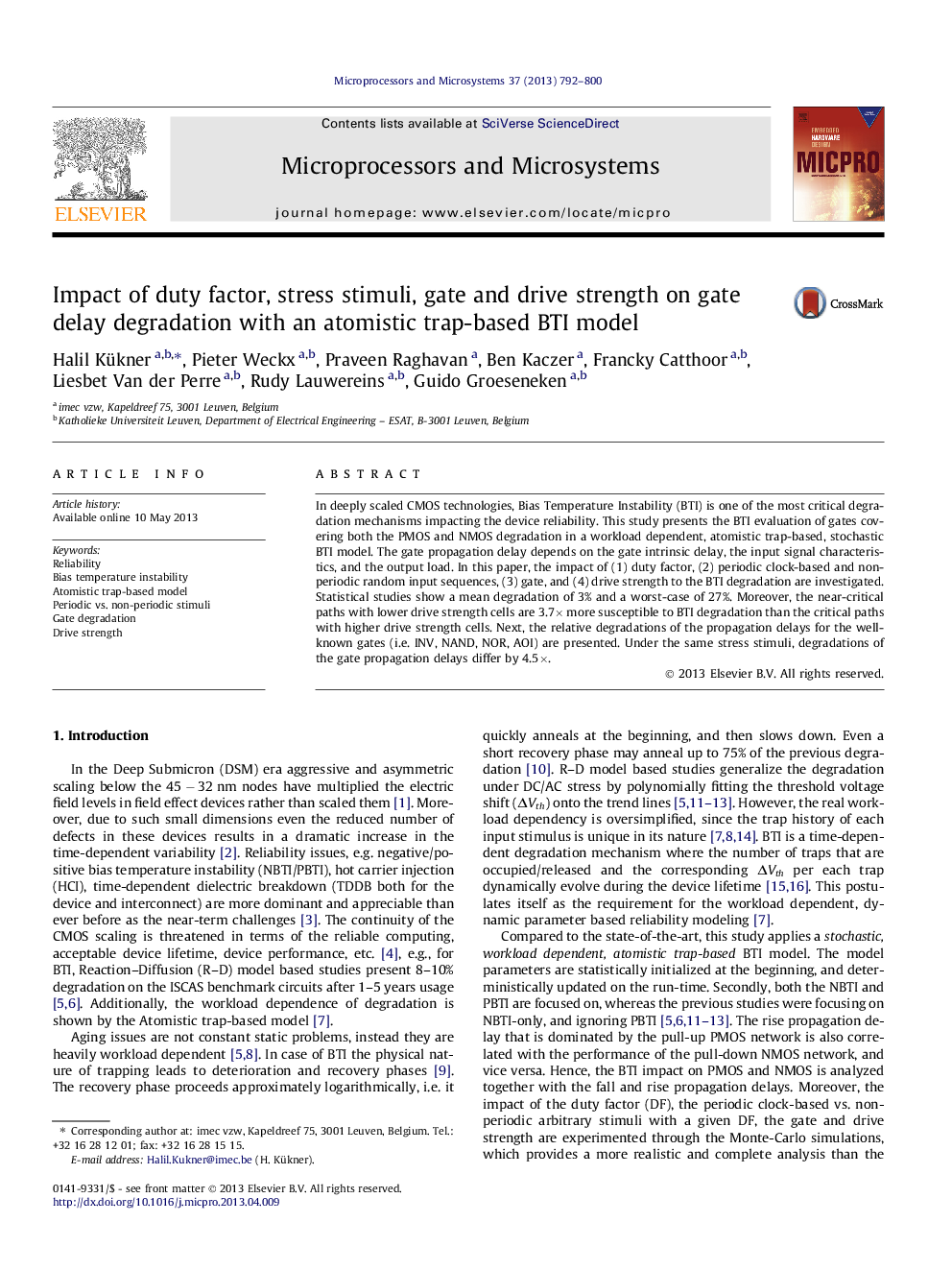| Article ID | Journal | Published Year | Pages | File Type |
|---|---|---|---|---|
| 10343571 | Microprocessors and Microsystems | 2013 | 9 Pages |
Abstract
In deeply scaled CMOS technologies, Bias Temperature Instability (BTI) is one of the most critical degradation mechanisms impacting the device reliability. This study presents the BTI evaluation of gates covering both the PMOS and NMOS degradation in a workload dependent, atomistic trap-based, stochastic BTI model. The gate propagation delay depends on the gate intrinsic delay, the input signal characteristics, and the output load. In this paper, the impact of (1) duty factor, (2) periodic clock-based and non-periodic random input sequences, (3) gate, and (4) drive strength to the BTI degradation are investigated. Statistical studies show a mean degradation of 3% and a worst-case of 27%. Moreover, the near-critical paths with lower drive strength cells are 3.7Ã more susceptible to BTI degradation than the critical paths with higher drive strength cells. Next, the relative degradations of the propagation delays for the well-known gates (i.e. INV, NAND, NOR, AOI) are presented. Under the same stress stimuli, degradations of the gate propagation delays differ by 4.5Ã.
Related Topics
Physical Sciences and Engineering
Computer Science
Computer Networks and Communications
Authors
Halil Kükner, Pieter Weckx, Praveen Raghavan, Ben Kaczer, Francky Catthoor, Liesbet Van der Perre, Rudy Lauwereins, Guido Groeseneken,
